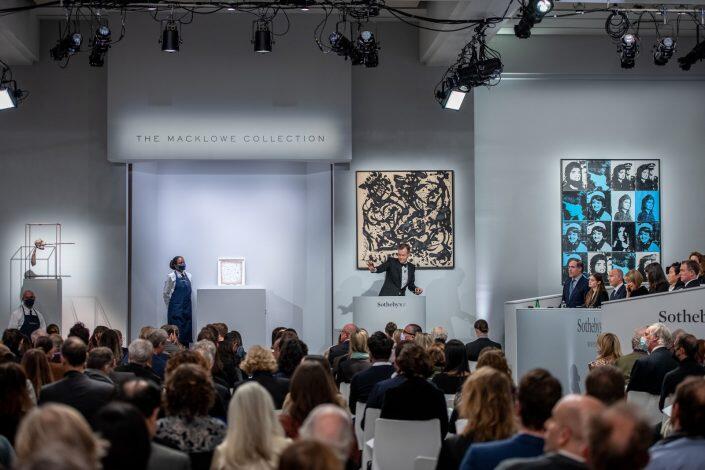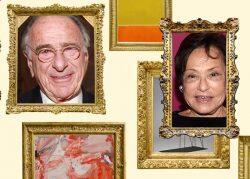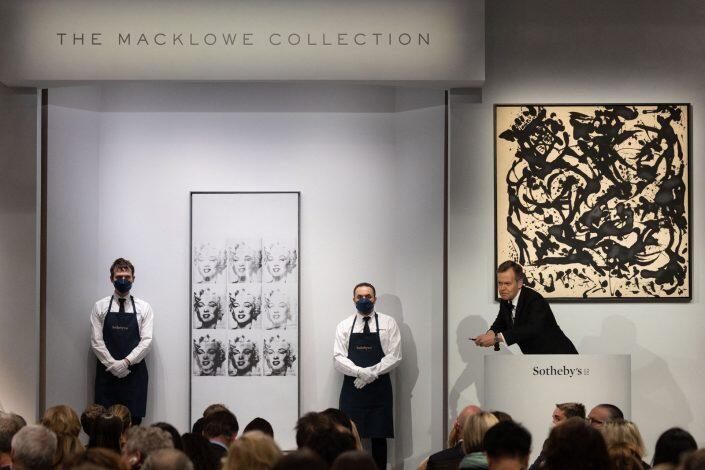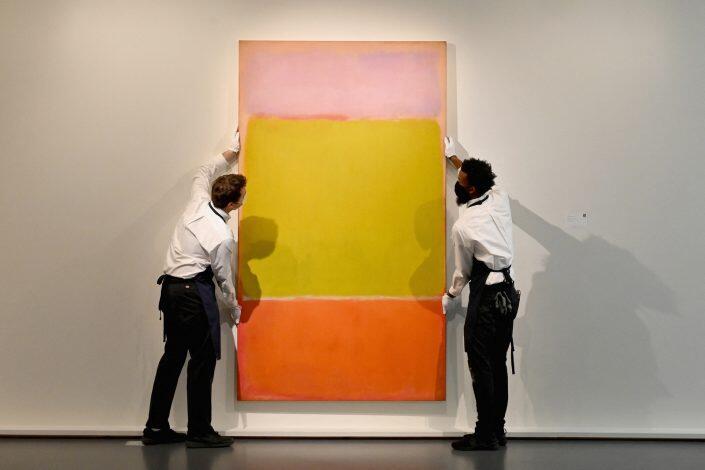Reverberations from Harry and Linda Macklowe’s acrimonious divorce echoed throughout the art world Monday night as more than half of their prized collection was auctioned off.
Held at Sotheby’s on Monday night, the auction of 35 works from the collection reaped $676.1 million, surpassing the auction house’s estimates. Sotheby’s had expected the works to sell for between $440 million and $620 million. An executive told the New York Times the sale was the “most valuable single-owner auction ever staged.”

A court had ordered the art sold and the proceeds split after the developer and his ex-wife, who was the driving force behind assembling the collection, could not agree on the value of their 65-piece art collection.
Read more



Linda Macklowe’s expert had pegged the total value at $625 million while the developer’s expert estimated $788 million. An insurance estimate conducted in 2015, before the couple’s divorce proceedings began, valued the collection at more than $937 million.
Linda Macklowe’s expert’s guess was exceeded Monday despite only 35 of the 65 pieces being sold. Indeed, all three of the estimates appear to have been lower than what the art is worth now.

(Getty Images)
The auction showed buyers were eager to scoop up the rare artwork that had been in the Macklowes’ collection for decades. A majority of the 35 works sold Monday appeared on the auction block for the first time.
Four works sold for over $50 million: paintings by Mark Rothko, Cy Twombly and Jackson Pollock, and sculptor Alberto Giacometti’s “Le Nez.” Rothko’s “No. 7” sold for $82.5 million after an eight-minute bidding war, the second highest price one of his works has ever fetched. Giacometti’s sculpture, the only one of his works that have ever appeared for a private sale, sold for $78.4 million, a record high for the artist.

Rothko’s “No. 7” (Getty Images)
“There is no question that the market raised its hands tonight, not just for masterworks, but in honor of the art of collecting at its highest level,” said Mari-Claudia Jimenez, Sotheby’s chairman and managing director of global fine art, in a press release.
Perhaps the world was honoring the art of collecting, but much of the fine art purchased these days goes into storage, as private buyers and museums don’t have enough display space or are seeking investment returns rather than to gaze upon the works. Storing art in tax-free enclaves maximizes ROI.
The Macklowes’ remaining 30 works will be sold in a second auction scheduled for May. The developer did not immediately respond to a request for comment.
